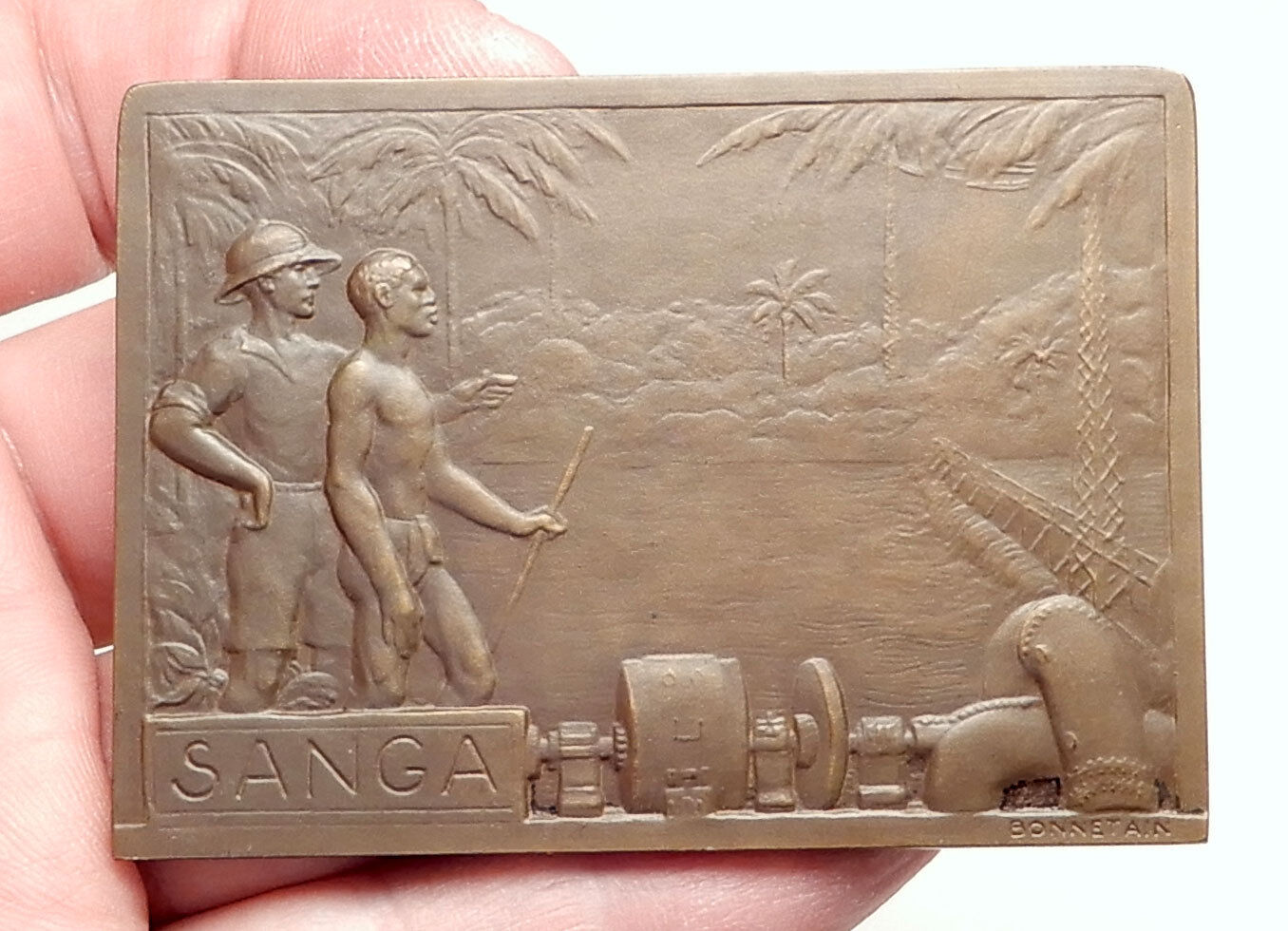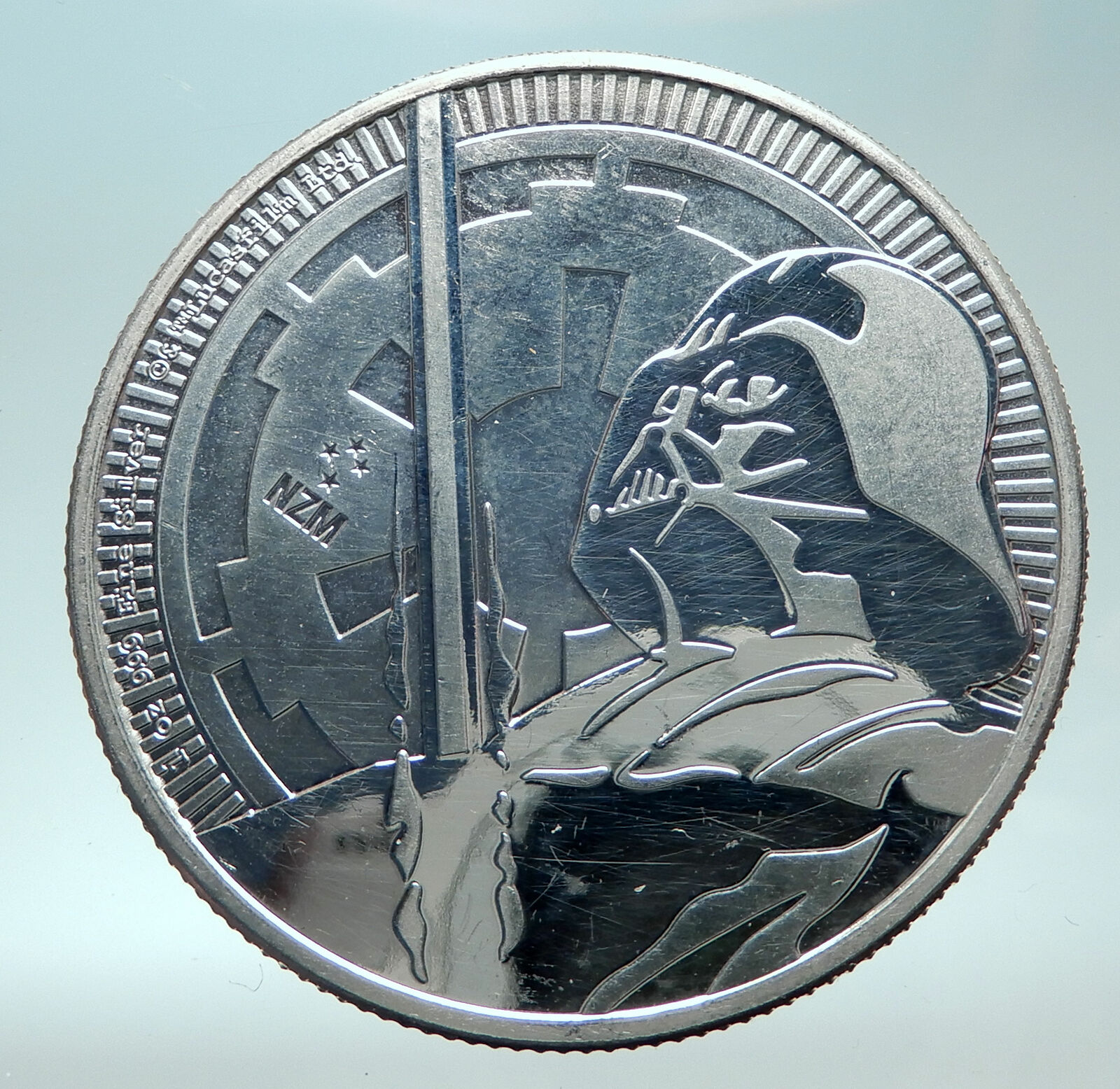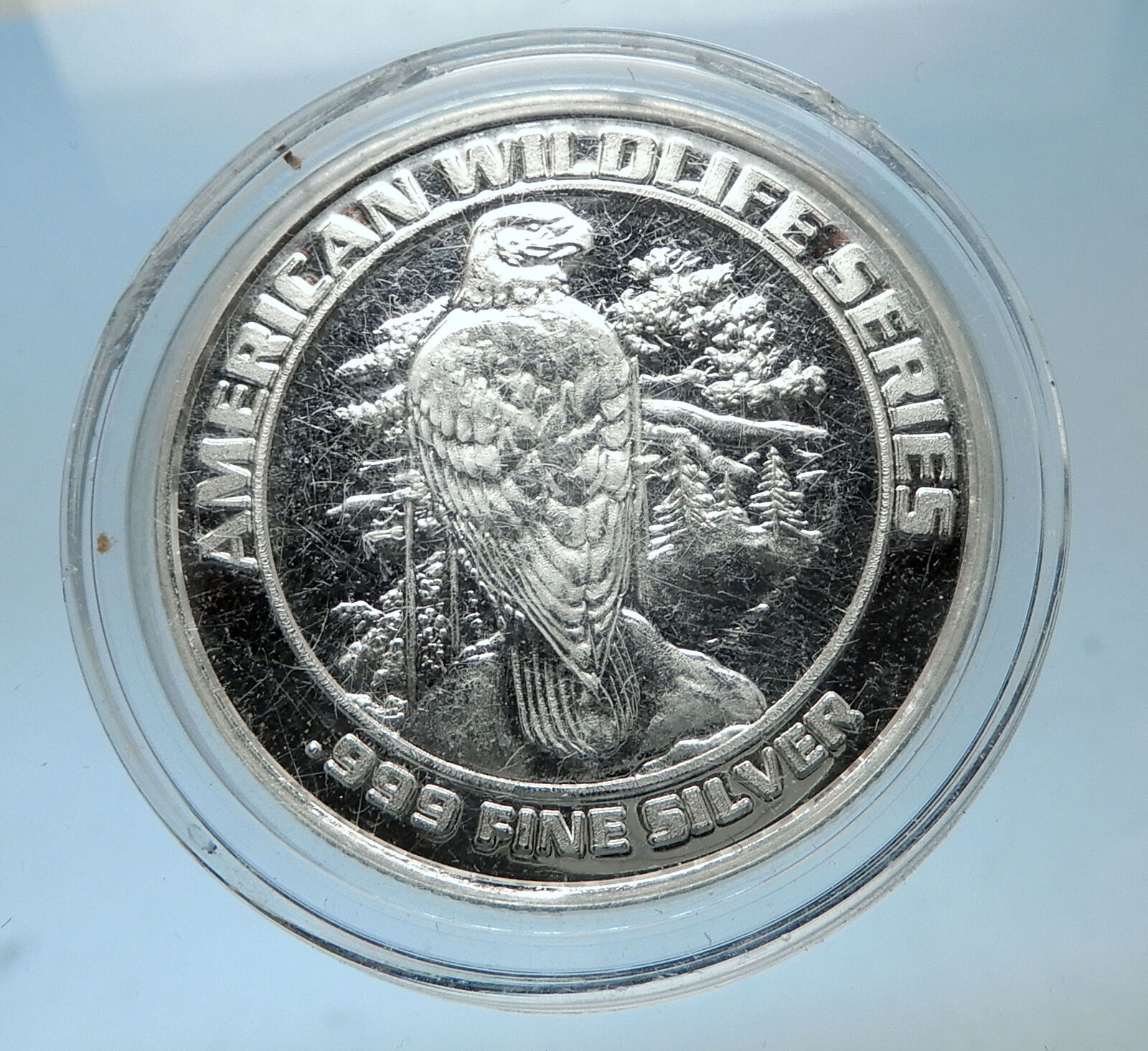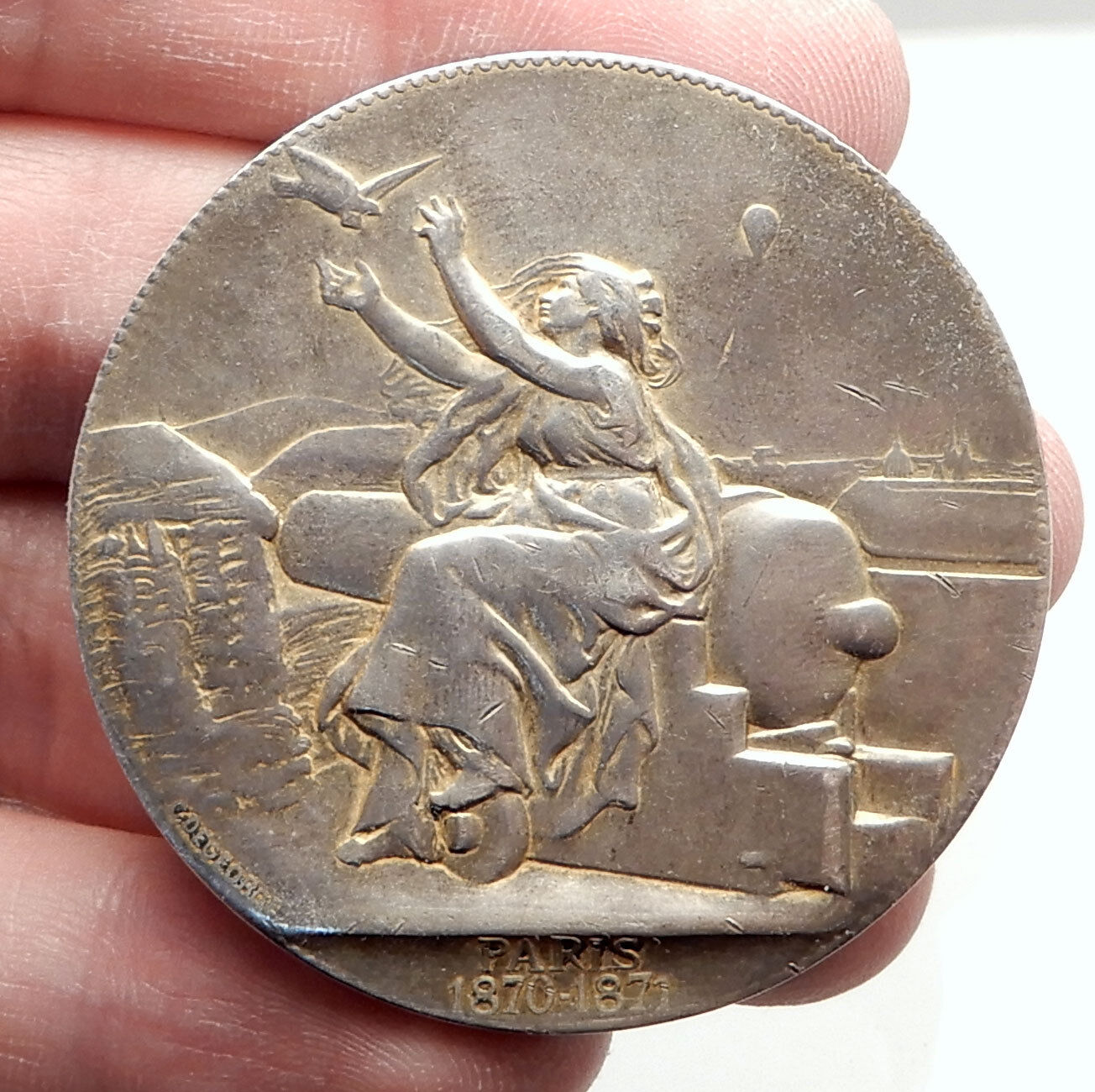|
German States – Prussia under Wilhelm I: King – 2 January 1861 – 9 March 1888
1897 Copper 39mm (32.25 grams)
WILHELM DER GROSSE DEUTSCHER KAISER KOENIG VON PREUSSEN, Wilhelm facing right.
ZUM ANDENKEN AN DEN HUNDERTSTEN GEBURSTSTAG DES GROSSEN KAISERS WILHELM I 1797-22 MAERZ 1897, Wreath and crown below.
You are bidding on the exact item pictured, provided with a Certificate of Authenticity and Lifetime Guarantee of Authenticity.
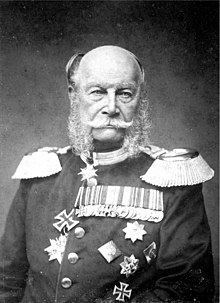 William I, also known as Wilhelm I (full name: William Frederick Louis, German: Wilhelm Friedrich Ludwig, 22 March 1797 – 9 March 1888), of the House of Hohenzollern was the King of Prussia (2 January 1861 – 9 March 1888) and the first German Emperor (18 January 1871 – 9 March 1888), as well as the first Head of State of a united Germany. Under the leadership of William and his Minister President Otto von Bismarck, Prussia achieved the unification of Germany and the establishment of the German Empire. Despite his long support of Otto von Bismarck as Minister President, however, William held strong reservations about some of Bismarck’s more reactionary policies, including his anti-Catholicism and tough handling of subordinates. Contrary to the aggressive, domineering Bismarck, William was described as polite, gentlemanly, and while a staunch conservative, more open to certain classical liberal ideas than his grandson Wilhelm II. William I, also known as Wilhelm I (full name: William Frederick Louis, German: Wilhelm Friedrich Ludwig, 22 March 1797 – 9 March 1888), of the House of Hohenzollern was the King of Prussia (2 January 1861 – 9 March 1888) and the first German Emperor (18 January 1871 – 9 March 1888), as well as the first Head of State of a united Germany. Under the leadership of William and his Minister President Otto von Bismarck, Prussia achieved the unification of Germany and the establishment of the German Empire. Despite his long support of Otto von Bismarck as Minister President, however, William held strong reservations about some of Bismarck’s more reactionary policies, including his anti-Catholicism and tough handling of subordinates. Contrary to the aggressive, domineering Bismarck, William was described as polite, gentlemanly, and while a staunch conservative, more open to certain classical liberal ideas than his grandson Wilhelm II.
 Prussia was a historically prominent German state that originated in 1525 with a duchy centred on the region of Prussia on the southeast coast of the Baltic Sea. It was de facto dissolved by an emergency decree transferring powers of the Prussian government to German Chancellor Franz von Papen in 1932 and de jure by an Allied decree in 1947. For centuries, the House of Hohenzollern ruled Prussia, successfully expanding its size by way of an unusually well-organised and effective army. Prussia, with its capital in Königsberg and from 1701 in Berlin, decisively shaped the history of Germany. Prussia was a historically prominent German state that originated in 1525 with a duchy centred on the region of Prussia on the southeast coast of the Baltic Sea. It was de facto dissolved by an emergency decree transferring powers of the Prussian government to German Chancellor Franz von Papen in 1932 and de jure by an Allied decree in 1947. For centuries, the House of Hohenzollern ruled Prussia, successfully expanding its size by way of an unusually well-organised and effective army. Prussia, with its capital in Königsberg and from 1701 in Berlin, decisively shaped the history of Germany.
 In 1871, German states (notably excluding Austria) united to create the German Empire under Prussian leadership. In November 1918, the monarchies were abolished and the nobility lost its political power during the German Revolution of 1918-19. The Kingdom of Prussia was thus abolished in favour of a republic-the Free State of Prussia, a state of Germany from 1918 until 1933. From 1933, Prussia lost its independence as a result of the Prussian coup, when the Nazi regime was successfully establishing its Gleichschaltung laws in pursuit of a unitary state. With the end of the Nazi regime, in 1945, the division of Germany into allied-occupation zones and the separation of its territories east of the Oder-Neisse line, which were incorporated into Poland and the Soviet Union, the State of Prussia ceased to exist de facto. Prussia existed de jure until its formal abolition by the Allied Control Council Enactment No. 46 of 25 February 1947. In 1871, German states (notably excluding Austria) united to create the German Empire under Prussian leadership. In November 1918, the monarchies were abolished and the nobility lost its political power during the German Revolution of 1918-19. The Kingdom of Prussia was thus abolished in favour of a republic-the Free State of Prussia, a state of Germany from 1918 until 1933. From 1933, Prussia lost its independence as a result of the Prussian coup, when the Nazi regime was successfully establishing its Gleichschaltung laws in pursuit of a unitary state. With the end of the Nazi regime, in 1945, the division of Germany into allied-occupation zones and the separation of its territories east of the Oder-Neisse line, which were incorporated into Poland and the Soviet Union, the State of Prussia ceased to exist de facto. Prussia existed de jure until its formal abolition by the Allied Control Council Enactment No. 46 of 25 February 1947.
The name Prussia derives from the Old Prussians; in the 13th century, the Teutonic Knights-an organized Catholic medieval military order of German crusaders-conquered the lands inhabited by them. In 1308, the Teutonic Knights conquered the region of Pomerelia with Gdańsk (Danzig). Their monastic state was mostly Germanised through immigration from central and western Germany, and, in the south, it was Polonised by settlers from Masovia. The Second Peace of Thorn (1466) split Prussia into the western Royal Prussia, a province of Poland, and the eastern part, from 1525 called the Duchy of Prussia, a fief of the Crown of Poland up to 1657. The union of Brandenburg and the Duchy of Prussia in 1618 led to the proclamation of the Kingdom of Prussia in 1701.
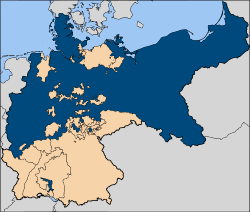 Prussia entered the ranks of the great powers shortly after becoming a kingdom, and exercised most influence in the 18th and 19th centuries. During the 18th century it had a major say in many international affairs under the reign of Frederick the Great. During the 19th century, Chancellor Otto von Bismarck united the German principalities into a “Lesser Germany”, which excluded the Austrian Empire. Prussia entered the ranks of the great powers shortly after becoming a kingdom, and exercised most influence in the 18th and 19th centuries. During the 18th century it had a major say in many international affairs under the reign of Frederick the Great. During the 19th century, Chancellor Otto von Bismarck united the German principalities into a “Lesser Germany”, which excluded the Austrian Empire.
At the Congress of Vienna (1814-15), which redrew the map of Europe following Napoleon’s defeat, Prussia acquired rich new territories, including the coal-rich Ruhr. The country then grew rapidly in influence economically and politically, and became the core of the North German Confederation in 1867, and then of the German Empire in 1871. The Kingdom of Prussia was now so large and so dominant in the new Germany that Junkers and other Prussian élites identified more and more as Germans and less as Prussians.
The Kingdom ended in 1918 along with other German monarchies that collapsed as a result of the German Revolution. In the Weimar Republic, the Free State of Prussia lost nearly all of its legal and political importance following the 1932 coup led by Franz von Papen. Subsequently, it was effectively dismantled into Nazi German Gaue in 1935. Nevertheless, some Prussian ministries were kept and Hermann Göring remained in his role as Minister President of Prussia until the end of World War II. Former eastern territories of Germany that made up a significant part of Prussia lost the majority of their German population after 1945 as the People’s Republic of Poland and the Soviet Union both absorbed these territories and had most of its German inhabitants expelled by 1950. Prussia, deemed a bearer of militarism and reaction by the Allies, was officially abolished by an Allied declaration in 1947. The international status of the former eastern territories of Germany was disputed until the Treaty on the Final Settlement with Respect to Germany in 1990, while its return to Germany remains a topic among far right politicians, the Federation of Expellees and various political revisionists.
The term Prussian has often been used, especially outside Germany, to emphasise professionalism, aggressiveness, militarism and conservatism of the Junker class of landed aristocrats in the East who dominated first Prussia and then the German Empire.
|





 William I, also known as Wilhelm I (full name: William Frederick Louis, German: Wilhelm Friedrich Ludwig, 22 March 1797 – 9 March 1888), of the House of Hohenzollern was the King of Prussia (2 January 1861 – 9 March 1888) and the first German Emperor (18 January 1871 – 9 March 1888), as well as the first Head of State of a united Germany. Under the leadership of William and his Minister President Otto von Bismarck, Prussia achieved the unification of Germany and the establishment of the German Empire. Despite his long support of Otto von Bismarck as Minister President, however, William held strong reservations about some of Bismarck’s more reactionary policies, including his anti-Catholicism and tough handling of subordinates. Contrary to the aggressive, domineering Bismarck, William was described as polite, gentlemanly, and while a staunch conservative, more open to certain classical liberal ideas than his grandson Wilhelm II.
William I, also known as Wilhelm I (full name: William Frederick Louis, German: Wilhelm Friedrich Ludwig, 22 March 1797 – 9 March 1888), of the House of Hohenzollern was the King of Prussia (2 January 1861 – 9 March 1888) and the first German Emperor (18 January 1871 – 9 March 1888), as well as the first Head of State of a united Germany. Under the leadership of William and his Minister President Otto von Bismarck, Prussia achieved the unification of Germany and the establishment of the German Empire. Despite his long support of Otto von Bismarck as Minister President, however, William held strong reservations about some of Bismarck’s more reactionary policies, including his anti-Catholicism and tough handling of subordinates. Contrary to the aggressive, domineering Bismarck, William was described as polite, gentlemanly, and while a staunch conservative, more open to certain classical liberal ideas than his grandson Wilhelm II. Prussia was a historically prominent German state that originated in 1525 with a duchy centred on the region of Prussia on the southeast coast of the Baltic Sea. It was de facto dissolved by an emergency decree transferring powers of the Prussian government to German Chancellor Franz von Papen in 1932 and de jure by an Allied decree in 1947. For centuries, the House of Hohenzollern ruled Prussia, successfully expanding its size by way of an unusually well-organised and effective army. Prussia, with its capital in Königsberg and from 1701 in Berlin, decisively shaped the history of Germany.
Prussia was a historically prominent German state that originated in 1525 with a duchy centred on the region of Prussia on the southeast coast of the Baltic Sea. It was de facto dissolved by an emergency decree transferring powers of the Prussian government to German Chancellor Franz von Papen in 1932 and de jure by an Allied decree in 1947. For centuries, the House of Hohenzollern ruled Prussia, successfully expanding its size by way of an unusually well-organised and effective army. Prussia, with its capital in Königsberg and from 1701 in Berlin, decisively shaped the history of Germany.  In 1871, German states (notably excluding Austria) united to create the German Empire under Prussian leadership. In November 1918, the monarchies were abolished and the nobility lost its political power during the German Revolution of 1918-19. The Kingdom of Prussia was thus abolished in favour of a republic-the Free State of Prussia, a state of Germany from 1918 until 1933. From 1933, Prussia lost its independence as a result of the Prussian coup, when the Nazi regime was successfully establishing its Gleichschaltung laws in pursuit of a unitary state. With the end of the Nazi regime, in 1945, the division of Germany into allied-occupation zones and the separation of its territories east of the Oder-Neisse line, which were incorporated into Poland and the Soviet Union, the State of Prussia ceased to exist de facto. Prussia existed de jure until its formal abolition by the Allied Control Council Enactment No. 46 of 25 February 1947.
In 1871, German states (notably excluding Austria) united to create the German Empire under Prussian leadership. In November 1918, the monarchies were abolished and the nobility lost its political power during the German Revolution of 1918-19. The Kingdom of Prussia was thus abolished in favour of a republic-the Free State of Prussia, a state of Germany from 1918 until 1933. From 1933, Prussia lost its independence as a result of the Prussian coup, when the Nazi regime was successfully establishing its Gleichschaltung laws in pursuit of a unitary state. With the end of the Nazi regime, in 1945, the division of Germany into allied-occupation zones and the separation of its territories east of the Oder-Neisse line, which were incorporated into Poland and the Soviet Union, the State of Prussia ceased to exist de facto. Prussia existed de jure until its formal abolition by the Allied Control Council Enactment No. 46 of 25 February 1947.  Prussia entered the ranks of the great powers shortly after becoming a kingdom, and exercised most influence in the 18th and 19th centuries. During the 18th century it had a major say in many international affairs under the reign of Frederick the Great. During the 19th century, Chancellor Otto von Bismarck united the German principalities into a “Lesser Germany”, which excluded the Austrian Empire.
Prussia entered the ranks of the great powers shortly after becoming a kingdom, and exercised most influence in the 18th and 19th centuries. During the 18th century it had a major say in many international affairs under the reign of Frederick the Great. During the 19th century, Chancellor Otto von Bismarck united the German principalities into a “Lesser Germany”, which excluded the Austrian Empire. 

